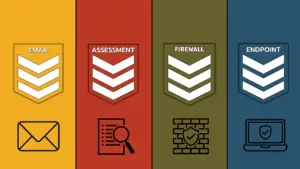In the realm of cybersecurity, the ability to anticipate, adapt, and respond swiftly to threats is paramount. Much like the martial art of Jiu-Jitsu, which emphasizes leverage, strategy, and adaptability, cybersecurity professionals can draw significant parallels in their approach to safeguarding digital landscapes.
Adaptability and Situational Awareness
Jiu-Jitsu teaches practitioners to be aware of their surroundings and to adapt their techniques to the ever-changing dynamics of a fight. Similarly, staying vigilant and adapting strategies on the fly is crucial in cybersecurity. Threat landscapes constantly evolve, and security experts must remain nimble in responding to emerging risks.
Leverage and Efficiency
Jiu-Jitsu emphasizes using an opponent’s energy and force against them, often relying on leverage rather than brute strength. In the cyber realm, efficiency is critical. Security measures need to be effective without creating unnecessary friction or hindering productivity. Just as in Jiu-Jitsu, where precise movements can neutralize a much larger opponent, in cybersecurity, well-crafted protocols, and tools can neutralize complex threats. For example, our MAED prevention services take on zero-day vulnerabilities with proactive planning and precision.
Continuous Learning and Improvement
Mastery in Jiu-Jitsu is an ongoing journey of learning, refining techniques, and gaining experience. Cybersecurity professionals also need to commit to continuous learning. Staying up-to-date with the latest threats, vulnerabilities, and technologies is essential. This mindset ensures that skills remain relevant and effective in an ever-changing threat landscape.
Defensive Strategies and Active Defense
Jiu-Jitsu is a defensive art that focuses on redirecting and neutralizing an opponent’s attacks. In cybersecurity, a strong defensive posture is equally vital. This involves deploying robust security measures, conducting regular vulnerability assessments, and actively monitoring for suspicious activities. Active defense strategies allow security teams to proactively identify and neutralize threats before they escalate.
Resilience and Persistence:
Jiu-Jitsu instills a sense of resilience and mental fortitude in practitioners. In the face of adversity, it encourages staying calm, focused, and persistent. Similarly, cyber security professionals often face daunting challenges. Whether it’s a sophisticated cyber-attack or a complex security incident, maintaining composure and persistence is crucial in finding efficient solutions.
The principles of Jiu-Jitsu offer invaluable insights into how cybersecurity professionals can approach their roles. By embracing adaptability, efficiency, continuous learning, defensive strategies, and resilience, security experts can strengthen their ability to effectively protect digital assets and mitigate threats. Much like our SOC member and Jiu-Jitsu enthusiast, Carter, who deftly maneuvers through a fight with finesse and precision, a cybersecurity expert imbued with these mindsets and practices is poised to tackle the ever-changing challenges of the cyber realm with equal proficiency.




